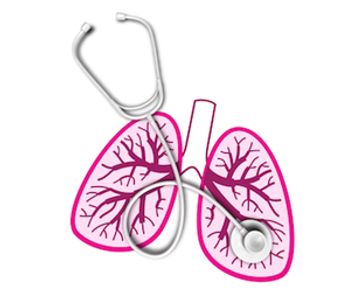
In 2016, synthetic opioids eclipsed prescription opioids as the most common drug involved in overdose deaths in the United States, a new report in JAMA said Tuesday.
Allison is Associate Editorial Director for The American Journal of Managed Care® (AJMC®) and The Center for Biosimilars®. She joined AJMC® in 2017. She produces and oversees written, video, and podcast content across several disease states and issues surrounding value-based care and health policy.
She has an MPA from New York University. You can connect with Allison on LinkedIn.

In 2016, synthetic opioids eclipsed prescription opioids as the most common drug involved in overdose deaths in the United States, a new report in JAMA said Tuesday.

The Institute for Clinical and Economic Review (ICER) is going to review the class of biologic drugs used to treat moderate to severe eosinophilic asthma and release a report in November, the organization said.

A California foundation recently released a policy brief about 10 questions it hopes will serve as a guide for the rest of the country seeking to improve care for older populations with complex health needs in Medicaid managed long-term services and supports programs.

In a retrospective analysis of patients with chronic obstructive pulmonary disease (COPD), those whose exacerbations were treated with systemic corticosteroids alone, or together with antibiotics, did more poorly than those treated with antibiotics alone, a recent study reported in the International Journal of Chronic Obstructive Pulmonary Disease.

Problems in healthcare seem overwhelming, with at least 17 different factors cited as driving unsustainable spending, according to a presentation at the Academy of Managed Care Pharmacy’s Managed Care & Specialty Pharmacy Annual Meeting held April 23-26, in Boston, Massachusetts. Two executives from Precision for Value LLC spoke about “Charting the Shifting Value-Based Healthcare Landscape: Emerging Developments for 2018 and Beyond” and offered their view on what healthcare companies can do to succeed.

During a Science and Innovation Product Theater, sponsored by Amgen, Seth J. Baum, MD, FAAC, FACPM, FAHA, FNLA, FASPC, president of the American Society for Preventive Cardiology, explained the significance of evolocumab's expanded indication, which makes it no longer mandatory for patients to try statins first.

There are 6 key issues that market access teams are facing amid evolving marketplace trends in the pharmaceutical industry, said Douglas Long, BS, MBA, vice president, industry relations, IQVIA, when speaking at the headline session of the Academy of Managed Care Pharmacy’s Managed Care & Specialty Pharmacy Annual Meeting held April 23-26, in Boston, Massachusetts.

Migraine is a chronic illness, but many people, including both patients and healthcare providers­, don’t think of it that way, said Richard G. Wenzel, PharmD, CPPS, speaking at the Academy of Managed Care Pharmacy’s Managed Care & Specialty Pharmacy Annual Meeting held April 23-26, in Boston, Massachusetts.

In an effort to make good on its plans to give patients more control over their health information as well as reduce the number of quality measures healthcare providers have to report, CMS announced changes in both of those areas Tuesday.

When Robert Navarro, PharmD, started his career decades ago at a managed care company, healthcare as a percentage of the gross domestic product was 8%. Now, the clinical pharmacy professor noted, the figure is at nearly 18% and rising, and the industry keeps having a conversation about value­. Speaking at the Academy of Managed Care Pharmacy’s Managed Care & Specialty Pharmacy Annual Meeting, held April 23-26, in Boston, Massachusetts, he and Ashok Vegesna, PharmD, MS, of Novartis, spoke about Visions of a Value-Based Health Care System.

At the Academy of Managed Care Pharmacy's Managed Care & Specialty Pharmacy Annual Meeting, held April 23-26, in Boston, Massachusetts, an overflow capacity crowd gathered for one of the meeting’s yearly highlights­: Specialty Pharmaceuticals in Development. Aimee Tharaldson, PharmD, a senior clinical consultant in Emerging Therapeutics for Express Scripts, talked about the key trends in the specialty drug market, including cancer drugs, new competition, and orphan drugs.

In a new study, researchers sought to identify the heterogeneity of asthma and chronic obstructive pulmonary disease (COPD) overlap syndrome, known as ACOS, in patients with mild to moderate airflow restriction. Using national survey and insurance claims data in Korea, they sought to identify the diverse epidemiological characteristics and subtypes of ACOS associated with exac­erbations, healthcare use, and cost.

Learning good inhaler technique is critical for effective care and treatment for chronic obstructive pulmonary disease (COPD) and other respiratory disorders. But a survey of healthcare providers and patients show that both groups place more importance on medication over devices when it comes to COPD treatments, and both groups show limited concerns about proper device use.

A few days after releasing a call for action about social determinants of health, the American College of Physicians (ACP), talked more about the topic as they began their Internal Medicine Meeting 2018. The briefing discussed ways to reduce inequalities in healthcare and how the ACP and other medical professionals can promote health equity.

Food insecurity (ie, if a patient suffers from inadequate access to enough healthy food on a regular basis) is one of the markers of social determinants of health (SDOH). Earlier this week, the American College of Physicians called for action on SDOH in order to improve patient care and health outcomes. But a proposal in the farm bill that passed out of a Congressional committee Wednesday does the opposite and will worsen food insecurity, according to an analysis by a research and policy institute.

A new study comparing triple therapy for chronic obstructive pulmonary disease (COPD) against dual therapy resulted in a lower rate of moderate or severe COPD exacerbations and a lower rate of hospitalizations. However, triple therapy had a much higher incidence of pneumonia, which the researchers said was to be expected.

The majority of quality measures for ambulatory internal medicine in Medicare's Merit-based Incentive Payment System (MIPS) program are not valid based on criteria developed by the American College of Physicians (ACP), which called for a "time out" to assess and revise the approach to assessment of physician performance.

Two different approaches to attack the opioid-fueled substance use disorder crisis are on display this week, as Congress readies itself for action on more legislation, while 2 major medical organizations focused on payment models in order to deliver improved care.

President Donald Trump will deliver his first major speech on drug prices on April 26; a recent Medicare Payment Advisory Commission proposal would cut Medicare payment rates by 30% for some services at hospital-affiliated free-standing emergency departments; nursing homes routinely turn away patients seeking care if they are using medication-assisted treatment to treat substance use disorder for opioids.

The American College of Physicians released a set of 9 recommendations today meant to address social determinants of health (SDOH) in order to improve patient care and health outcomes that are negatively impacted by the conditions in the United States under which patients live, grow, and work. However, in an accompanying editorial, 2 physicians wrote that they feared inequities that widen gaps in SDOH would worsen.

Childhood factors such as asthma, maternal smoking, bronchitis, allergic rhinitis, and eczema predisposed children to lung function decline and chronic obstructive pulmonary disease (COPD) as adults, according to 2 recent studies. Risks might be minimized by reducing maternal smoking, encouraging immunizations, having good asthma control, and avoiding smoking, researchers said.

A DNA test method called polymerase chain reaction can shave days off the time it takes to detect a Legionnaires' disease outbreak to mere hours and should be implemented by health departments to prevent illness, a new study reported.

What do primary care providers really think about using electronic consultation (eConsult) systems to confer with specialists? A study published in JAMA Internal Medicine found a mix of opinions, and most primary care providers viewed eConsult as shifting some specialty work to them.

National Institutes of Health researchers have uncovered a genetic basis of a rare bone disease known as melorheostosis and said the discovery could offer potential treatment targets, provide clues about bone development, and lead to insights about fracture healing and osteoporosis.

CMS Tuesday released a report detailing racial, ethnic, and gender disparities in the quality of care received by Medicare Advantage beneficiaries (MA) between 2015 and 2016. CMS said it was releasing the report in recognition of National Minority Health Month, with the aim of raising awareness of health disparities, develop interventions for racially and ethnically diverse Medicare beneficiaries, and implement quality improvement efforts that improve health equity.

Which state you reside in in the United States is a factor in your risk of suffering from disease, disability, and cause of death, according to the latest annual study that looks at 195 locations around the world. And while health has improved across much of the nation, some states saw stark rises in “diseases of despair,” with large increases in drug and alcohol use disorders, obesity, high body mass index, poor diet, and diabetes.

CMS said that those opposed to abortion could use their belief as a hardship exemption to avoid the Affordable Care Act’s (ACA) individual mandate penalty this year. Plus, the agency will allow states more flexibility in setting their essential health benefit benchmark plans, in a series of rule changes finalized Monday.

Can tai chi act as a substitute for pulmonary rehabilitation for patients with chronic obstructive pulmonary disease (COPD)? A study of 120 patients in the journal Chest suggests that it is a possibility.

The Trump administration has finalized a new director for the Center for Medicare and Medicaid Innovation (CMMI): Adam Boehler, the former CEO of Landmark Health, a home-based medical care company.

A new set of 16 recommendations released by the Society of Hospital Medicine urges hospitalists, primary care physicians, nurse practitioners, physician assistants, and other clinicians to limit opioid use whenever possible for hospitalized patients with acute pain. The consensus statements, published in the Journal of Hospital Medicine, provides guidance about when to use opioids versus other pain methods.

259 Prospect Plains Rd, Bldg H
Cranbury, NJ 08512
© 2025 MJH Life Sciences®
All rights reserved.
